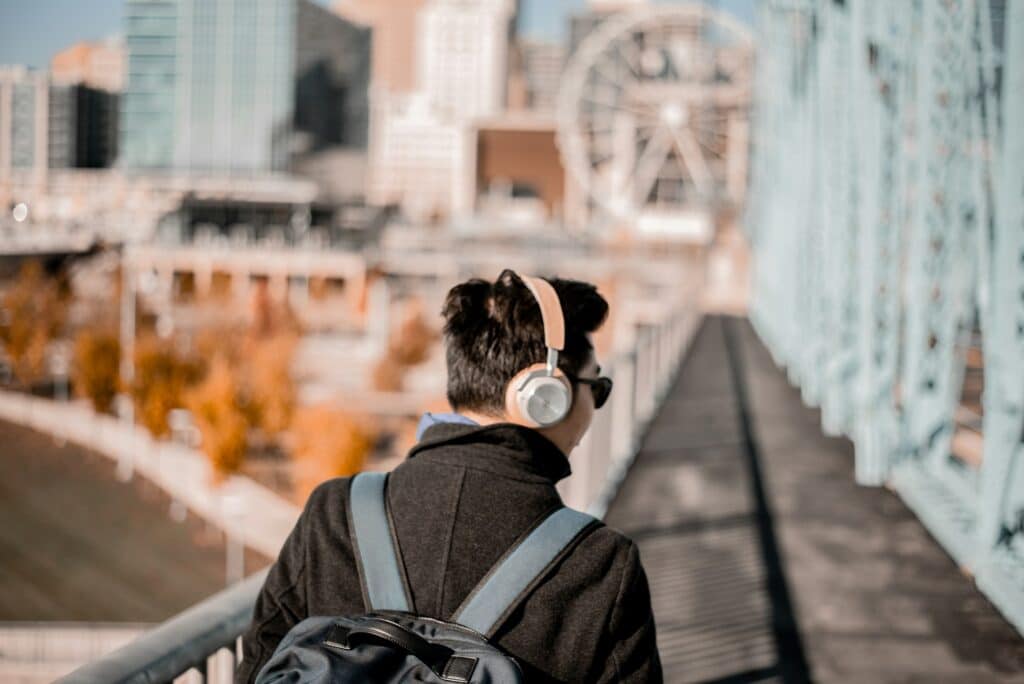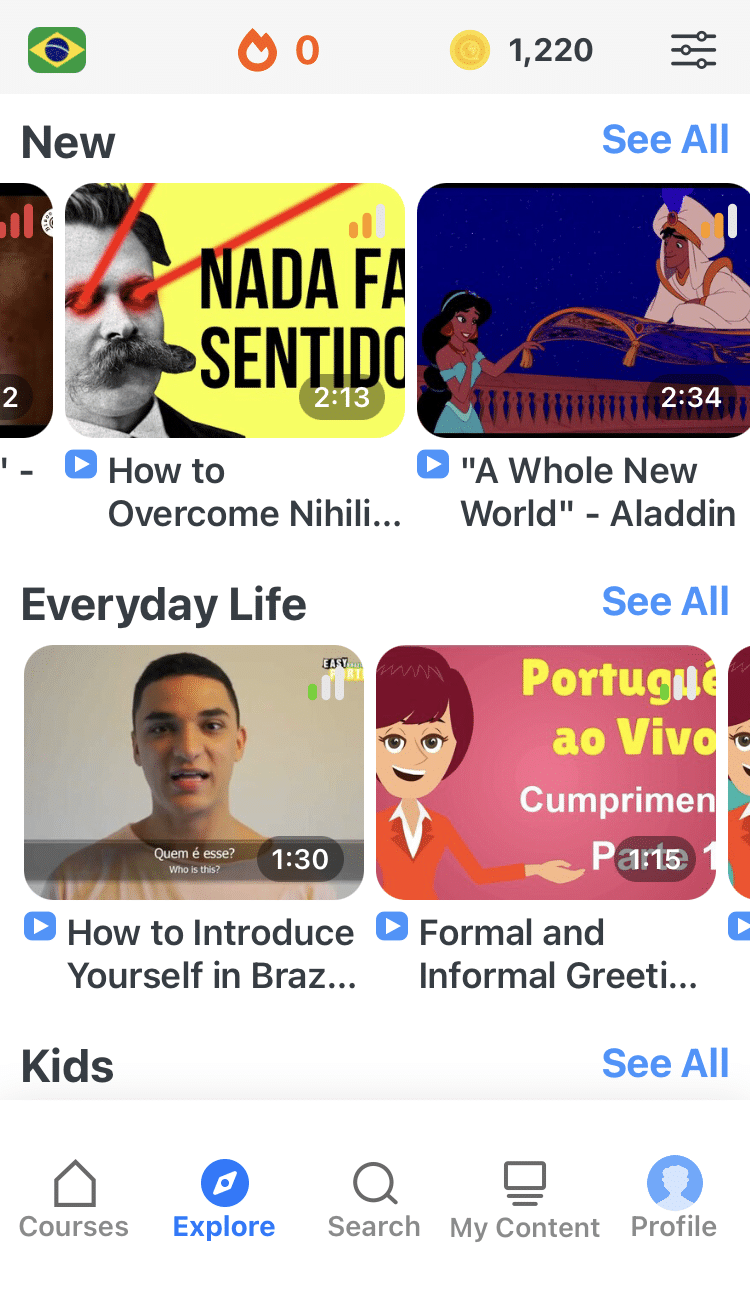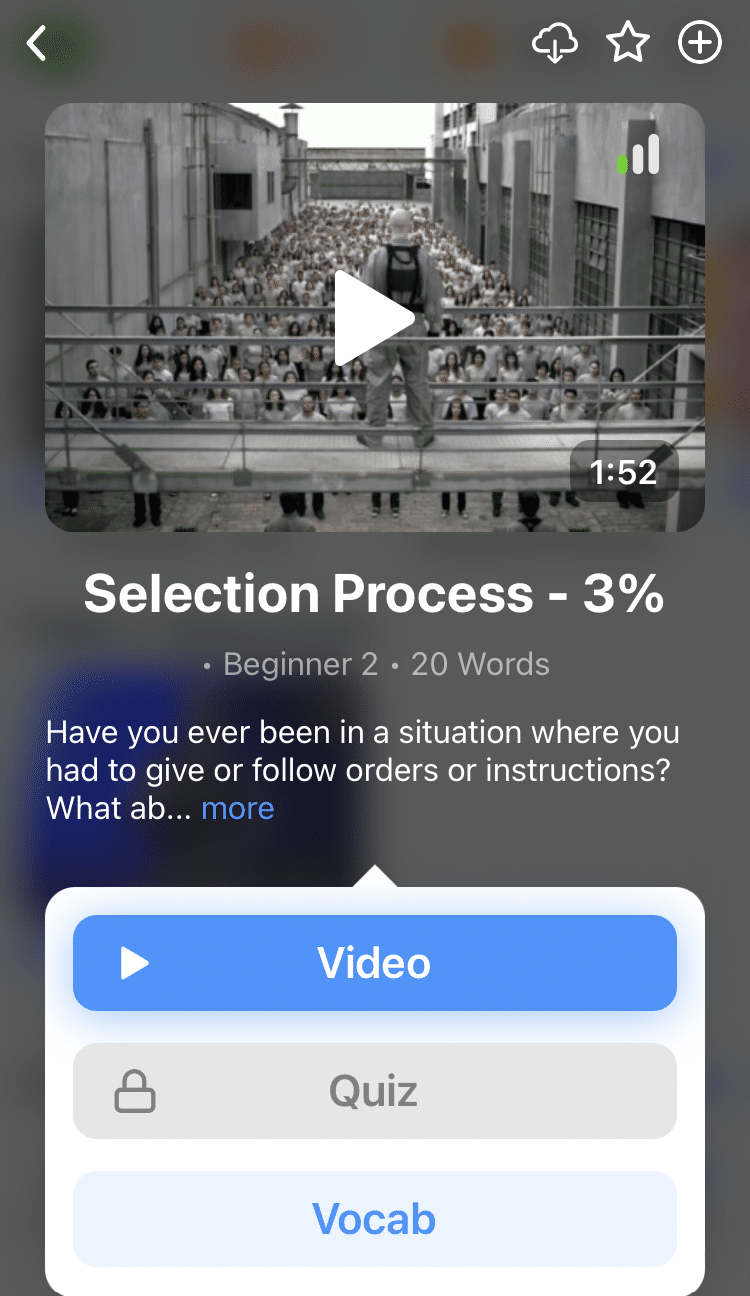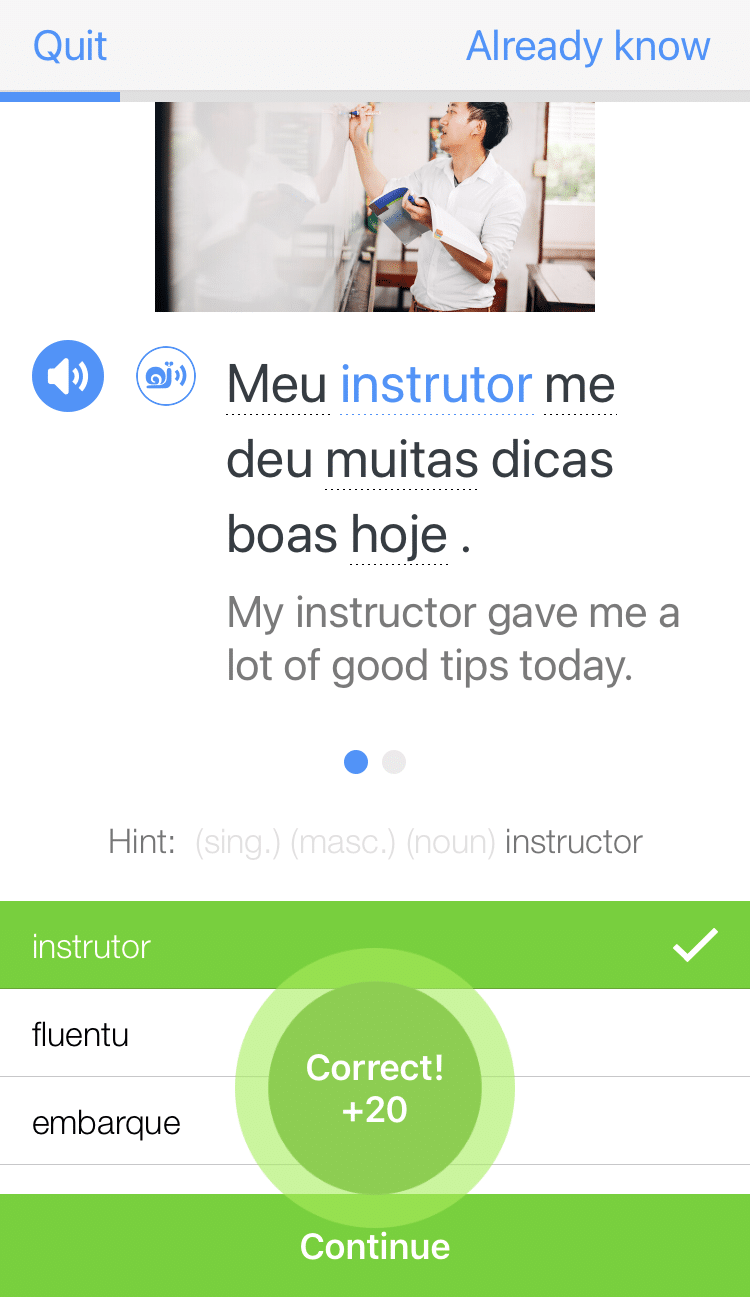
43 Portuguese Podcasts for Perfect Listening Practice
Listening comprehension is an often-overlooked part of learning a language.
Listening to Portuguese songs and watching TV shows and movies is one great way to practice listening, but in this post, I’ll introduce you to an even better way to study Portuguese listening: Portuguese podcasts!
Podcasts are perfect for language learners because they usually feature real, authentic conversation without distractions.
Check out some of the best Portuguese podcasts for learners, from educational episodes to pods made by and for native Portuguese speakers.
Contents
Download: This blog post is available as a convenient and portable PDF that you can take anywhere. Click here to get a copy. (Download)
Portuguese Podcasts for Language Learners
These podcasts are perfect first steps into Portuguese listening since they’re created with learners in mind. If you’re a beginner or a low-intermediate learner, try one of these!
PortuguesePod101
Type of Portuguese covered: Brazilian
PortuguesePod101 teaches Brazilian Portuguese through a combination of podcasts, detailed lesson notes and flashcards that will help you test your newly acquired vocabulary. Some episodes set out to introduce beginners to the language, others are geared towards the intermediate-advanced crowd and a few are focused entirely on vocabulary building.
Coffee Break Portuguese

Coffee Break Portuguese invites you to sip and learn, as teacher Rafael and student Ava guide you through everyday Portuguese with friendly dialogues, clear explanations and a sprinkle of cultural insights—all in the time it takes to enjoy your cuppa.
Fala Gringo!

Hosted by the energetic Leni, this dynamic podcast throws together fun dialogues and cultural tidbits. The podcast is designed to make Portuguese learning less by the book and more like a spontaneous dance party. “Fala Gringo!” (Speak, Foreigner!) also has vocabulary lists and transcripts for each episode available by request via email.
Really Learn Portuguese
 Type of Portuguese covered: Brazilian
Type of Portuguese covered: Brazilian
This podcast is as close to an authentic podcast for learners as you’ll get. It features native speakers chatting about everyday life, pop culture and current affairs, while clear pronunciations and explanations guide your listening comprehension. It’s like eavesdropping on real conversations while having a friendly Brazilian teacher at your side.
Carioca Connection

“Carioca Connection” bridges the gap between textbook Portuguese and real-life Rio de Janeiro speech. It features conversations between hosts Alexia (a native speaker from Brazil) and Foster (a Portuguese learner from the US). Tune in for fun, authentic dialogues sprinkled with cultural insights, helpful vocabulary breakdowns and a dash of humor.
Portuguese Lab Podcast
 Type of Portuguese covered: European
Type of Portuguese covered: European
This podcast features bite-sized Portuguese listen-and-repeat practice sessions. Episodes focus on everyday scenarios like shopping, dining and visiting the doctor. In each installment, you’ll find dialogues, vocabulary breakdowns and repetition exercises—all wrapped in a friendly and encouraging atmosphere.
Portuguese with Carla
 Type of Portuguese covered: European
Type of Portuguese covered: European
Hosted by Carla Sabala, a native teacher with a knack for making learning fun, this podcast blends clear explanations, engaging dialogues and cultural trivia into engaging lessons. Carla’s infectious enthusiasm and practical approach will turn your Portuguese journey into a delightful adventure. Every episode comes with additional learning resources like transcripts, quizzes and flashcards—all for free!
Practice Portuguese

Unfortunately, this podcast isn’t producing new episodes anymore. Fortunately, it has 101 episodes for you to peruse at your leisure, so you can still get a ton of value from it! Episodes center around natural conversation, offering real-life dialogues, captivating stories and engaging exercises. It’s a great first step into immersion—you may not understand everything at first but the more you listen, the better you’ll get at it.
Brazilian PodClass
Type of Portuguese covered: Brazilian
Brazilian PodClass is all about bringing an authentic context to language learning. This free podcast series features interviews, stories and thematic programs about the Brazilian way of life that will engage listeners as they brush up on their conversation essentials, pronunciation, grammar and verb structures.
Authentic Portuguese Podcasts
When the podcasts above become too easy to understand, you may be ready to take it a step further by listening to podcasts made by and for native Portuguese speakers.
These authentic Portuguese podcasts are perfect learning tools for high-intermediate and advanced learners, but any level learner can give them a try, of course! Pair these podcasts with other authentic resources like FluentU for a complete immersive learning experience from home.
FluentU takes authentic videos—like music videos, movie trailers, news and inspiring talks—and turns them into personalized language learning lessons.
You can try FluentU for free for 2 weeks. Click here to check out the website or download the iOS app or Android app.
News and Current Affairs
- Café Brasil: Brews up a potent blend of thought-provoking musings and insightful reflections on current affairs, culture and society. It’s served with a dash of music and Luciano Pires’ signature wit and sometimes controversial viewpoints.
- O Assunto (The Subject): A daily news podcast that delves deep into a single topic in each episode, offering comprehensive insights and analysis on various current issues.
- Café da Manhã (Morning Coffee): A morning news briefing podcast that covers the latest headlines, interviews and analysis of important events in Brazil and around the world.
- Durma com Essa (Sleep with This): An evening news podcast that provides a recap of the day’s most significant news stories, ensuring you’re up to date before you sleep.
- Perguntar Não Ofende (Asking Doesn’t Offend): Candid and thought-provoking questions are asked to prominent guests, leading to insightful discussions on various topics.
- O Homem Que Mordeu o Cão (The Man Who Bit the Dog): This satirical podcast explores bizarre and unusual news stories from around the world, often focusing on the lighter side of the news.
Comedy
- Vamos Todos Morrer (Let’s All Die): Hugo van der Ding shares short biographies of historic “larger-than-life” people.
- Terapia de Casal (Couples Therapy): Offers insights, advice and discussions about relationships, aiming to help couples navigate challenges and strengthen their bonds.
- Extremamente Desagradável (Extremely Unpleasant): Explores controversial and unconventional topics through an unfiltered and bold lens, offering a thought-provoking take on various subjects.
- Choque de Cultura (Culture Shock): A comedic podcast where hosts review and discuss movies and TV shows, often providing humorous and exaggerated critiques with a unique cultural perspective.
- Sem Barbas Na Língua (Without Beards on the Tongue): Guilherme Duarte and Hugo Gonçalves bring their unique perspectives to current events and pop culture, offering hilarious commentary and discussions. The podcast name roughly means “speaking your mind without holding back” and that’s exactly what you get with this one.
Interview and Talk Shows
- Roda Viva (Wheel of Life): Brazil’s iconic interview carousel spins with sharp questions and diverse guests, grilling minds from presidents to pop stars.
- Prova Oral (Oral Exam): Sparks lively debates and witty banter on current affairs, Portuguese society and diverse perspectives, like a radio coffeehouse.
- Mamilos (Nipples): A hilarious and insightful interview podcast that focuses on currently trending topics in social media from the perspective of Brazilian women.
- Empreendedoras (Entrepreneurs): Inspiring interviews with female entrepreneurs and business leaders, offering insights and advice for aspiring businesswomen. Stopped producing new podcasts in September 2023 but still a fantastic resource.
Culture and Music
- Papo Acessível (Accessible Chat): Host Fernando Scalabrini brings trivia knowledge, culture and insight into an accessible audio format that everyone can enjoy.
- Novedos (New/Original Things): This is a podcast no longer in production by San Francisco Bay DJ Forty Fivan that showcased rare Brazilian tunes that even some natives might not know about. Every episode focuses on a different genre from different decades and includes commentary.
Storytelling and Fiction
Note that three of these podcasts no longer post new episodes, but all have a great catalog of episodes to browse. Since most feature independent stories in each episode, I thought they were well worth a mention!
- Contador de Histórias (Storyteller): This high-quality project by Danilo Battistini is an audio drama with stories inspired by old radio drama productions, tabletop RPGs and other wonderfully nerdy things.
- Storyglot: Each episode features a super short story for bite-sized listening sprints. Episodes are also labeled according to their level, geared mainly at beginners and intermediate Portuguese learners.
- Ficção Alternativa (Alternative Fiction): A podcast with inspiration and many insider tips for current and aspiring writers that features interviews with authors and other professionals in the world of writing.
- Stories in Portuguese: A storytelling podcast with a focus on fantastic, horrific and otherwise epic adventures for learning Portuguese with stories.
Technology
- Hipsters Ponto Tech (Hipsters Tech Point): Hosted by tech gurus with wit and passion, this podcast dives deep into the hottest tech trends, gadgets and startup scenes, and often features guests from the tech industry.
- Tecnocast: Tech-savvy minds dissect the latest hardware, trends and controversies in the tech industry, with a focus on how technology affects our everyday lives.
- NerdCast: NerdCast is hosted by pop culture titans Azaghal and Deive Paz and covers everything nerdy, including comics, movies and games, often featuring a tech and coding angle.
- SuperToast: Join André Borges and Tiago Henriques for in-depth discussions on tech news, industry events and the impact of technology on our lives.
- Os Geeks (The Geeks): Join a group of passionate tech enthusiasts as they discuss science fiction, video games and the intersection of technology and pop culture.
Science and Education
- Fronteiras da Ciência (Boundaries of Science): Chats by scientists that unravel the mysteries of the universe, from black holes to brainwaves, in a laid-back atmosphere meant to be accessible to any listener.
- Scicast: Blends witty banter with scientific rigor, dissecting everything from particle physics to pop culture with a team of enthusiastic researchers.
- 90 Segundos de Ciência (90 Seconds of Science): Bite-sized Portuguese science research that serves up daily discoveries in just 90 seconds per episode.
- Quarenta e Cinco Graus (Forty-Five Degrees): A thought-provoking podcast that challenges listeners to think critically about the world around them.
- Ciência ao Pé do Ouvido (Science by Ear): This production by the Federal University of Uberlândia demystifies scientific concepts and explores fascinating topics in a clear and engaging way.
- Pergunta Simples (Simple Question): No question is too basic for this podcast! A team of scientists answers curious queries about the universe, nature and everyday phenomena, with a strong emphasis on exploring communication.
- Dragões de Garagem (Garage Dragons): Takes a playful and accessible approach to science, covering diverse topics from biology and physics to the scientific method.
- Saúde em Foco (Health in Focus): Delve into the world of health and medicine with interviews with doctors, scientists and experts, exploring topics like nutrition, disease prevention and current research in medicine.
Get lost in an episode of a Portuguese podcast and you’re sure to be entertained and learning the language at the same time. Sounds like a win to me!
And One More Thing…
If you've made it this far that means you probably enjoy learning Portuguese with engaging material and will then love FluentU.
FluentU takes authentic videos—like music videos, movie trailers, news and inspiring talks—and turns them into personalized Portuguese lessons.
Other sites use scripted content. FluentU uses a natural approach that helps you ease into the Portuguese language and culture over time. You’ll learn Portuguese as it’s actually spoken by real people.
FluentU has a wide variety of videos, as you can see here:

FluentU brings native videos within reach with interactive transcripts. You can tap on any word to look it up instantly. Every definition has examples that have been written to help you understand how the word is used. If you see an interesting word you don’t know, you can add it to a vocab list.

Review a complete interactive transcript under the Dialogue tab, and find words and phrases listed under Vocab.

Learn all the vocabulary in any video with FluentU’s robust learning engine. Swipe left or right to see more examples of the word you’re on.

The best part is that FluentU keeps track of the vocabulary that you’re learning, and gives you extra practice with difficult words. It'll even remind you when it’s time to review what you’ve learned. Every learner has a truly personalized experience, even if they’re learning with the same video.
You can try FluentU for free for 2 weeks. Click here to check out the website or download the iOS app or Android app.





